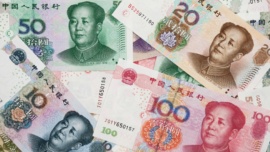As the Macau Poker Cup 25 drew to a close yesterday, Business Daily sat down with David Jung, Managing Director of Elysium Consulting Group and one of the main figures in the development of poker in the MSAR. As a former Asia Regional Marketing Director for online poker website PokerStars, and someone who had a hand in creating the local tournament in 2008, Jung was also involved in helping to legalise poker in the city, organising the Asia Pacific Poker Tour, opening PokerStars Live Macau rooms in the Grand Waldo and Grand Lisboa, and making the Macau Poker Cup one of the largest regional poker tournaments in Asia. Jung shared his views with Business Daily on online gaming regulations, poker development in the region and why gaming addiction seems to affect some Asian countries more than others, based on his experience in live poker development in Macau, Taiwan, Philippines, Japan, China and Singapore. How big is the worldwide poker market? I would say that back in 2010, the worldwide poker market was valued at around US$4 billion (MOP31.9 billion), but now it is probably half that, with the decrease mainly because of the Black Friday events in 2011 (when US federal authorities opened a federal case against the three biggest online poker websites PokerStars, Full Tilt Poker and Absolute Poker for alleged bank fraud and money laundering). What’s significant about that is that the Americans, for the worldwide market, composed 40 per cent of the player base, but they composed 60 per cent of the net depositors. Poker was growing at that time because it was feeding off the American players; since the Americans left, it has been declining. Everybody has been kind of adjusting from that paradise to a more recreational kind of poker playing. The industry is really trying to protect individual poker players who are not the best, but who play regularly. Almost every poker site has changed that way; they’re not concentrated on growing, but on surviving. In 2008 there used to be 200 poker sites, in 2010 there were maybe 70 poker sites and now there are maybe 20 truly good poker websites. How have regulations for poker websites changed? Regulation has caught up since 2006 and now countries in Asia and in Europe have regulated the sector – some to completely make it illegal and some to include it in a tax regime. Some regimes, like in France, charge 50 per cent tax, so it’s very hard to make money and gain new players. Because poker is a player-to-player game, it is essential to get new players, and the only way to do it is by marketing. If you decrease the spending on marketing then the entire market starts to decrease. Few companies have the ability to spend that much money, so the overall poker market has decreased, except in China and Asia. So is Asia the best market for poker now? I would say Asia has the best momentum for poker, but whether it’s online or real world, or social or for money – poker is all different. In terms of social poker, Asia is definitely the place where it’s booming, especially China. Each market in Asia is developing its own kind of local poker network, whether it’s social, real money or a hybrid. For example, in the Philippines, desktop gaming is almost dead and most player-to-player gaming was desktop, therefore poker in the Philippines is not really a great product. However, in places like Indonesia where desktop gaming is still strong, player-to-player is still very good. I think the best market in the world for poker will always be the United States, because it’s an American game, even if it was invented in France. Western Europe is also a great market, especially for real money poker. How is the poker scene in China? Real money tournaments are not allowed in China, but there are small tournaments with a very different structure, with set prizes that don’t change with the number of participating players. International players will never play those tournaments because they think the value is not as good, but in China you have to say what the prize will be before the tournament begins to get authorisation. They have live poker clubs in China, where you basically buy in chips and you can win some kind of prize. Every different province has a different jurisdiction and rules about it, and some of the provinces allow for real money tournaments once in a while. They have some very beautiful poker clubs, but not for real money poker, just social gaming poker. How different are Chinese poker players from others? Interest in poker among young Chinese people is increasing and they know how to play many different poker variations that other players around the world don’t. While Americans normally want poker to be more skill-based, China is developing poker in its own way, especially mobile poker, embracing speed of play as part of the skill. Normally poker tournaments can last eight hours, but in China what they do is, for mobile social poker, every hand will have an ante – a forced bet – so games can be really fast. Therefore, these tournaments end after seeing who can win the most in 30 minutes, while in American tournaments, players are very slow at making a move. American poker players look more to the monetary aspect of poker, while Chinese players are so excited about the game itself, they just want to play, so they accept these kinds of tournaments. How about the poker scene in Macau? I think for live real money poker tournaments, Macau will always be the king, and I think it’s always the real stepping-stone for Asia. If you are a serious poker player in Asia there’s only one place you want to play and that place is Macau. The Philippines has a scene but it’s just not the same, it cannot compare. Even solely social poker players have the dream of one day playing here, so as long as Macau can continue to run world class tournaments, it will maintain that position and grow over time. Do you think gaming operators are becoming poker fans? Even though the rest of the gaming sector is doing very badly, poker is doing very well, so gaming operators are happy to have the poker operators coming in. I think since now the focus is shifting to mass-market, poker is a good product. Before they didn’t want it because they thought it occupied too much space and took a lot of manpower. It’s also probably only a tenth as profitable as the “reason games”, because casinos make money out of commission not win-loss, and in a tournament they only receive eight per cent of the buy-in. So most of the money the casinos do during the tournaments is from the hotels and food and beverage – after all, a tournament can last three days. Also during tournaments, the casinos put low stakes tables around the main ones, so that the girlfriends or boyfriends of the players can play too. When I was the regional manager of PokerStars, Grand Waldo at the time was very forward thinking and trying to be innovative, having the first craps table and the first poker tournament. Then we moved to Grand Lisboa, and in one way they were very happy and in another we took up a lot of space on their second floor. So what would you say are the best places to play poker in Macau? Well, in terms of aesthetics, I think Wynn Macau has the most beautiful poker rooms. The Venetian is a good place for an experienced player to win money from a lot of inexperienced players that go there, and City of Dreams I think has the hardest poker games in terms of the number of skilled players. How about in terms of online poker? I believe in Macau only SJM’s Macau Slot has a license, while everyone else can’t provide real money online gaming. In terms of real money gaming, PokerStars online is still by far the biggest player here, and has the biggest tournaments. What would you like to see done in the city in terms of regulations for online gaming? Regulations depend on the government’s view, but honestly if you are a player in Macau, the last thing you want to do is play online, since there’s so many options for where to go! I think how it is right now is fine, there’s definitely a reason for it. I don’t think that anyone thinks that Macau is an online gaming market. If you come here, it better be for live gaming, because it’s so accessible in such a small area. For instance, for a gamer in Tokyo, it takes him two hours to get back home by bullet train from the province to bet, so he will play online. In Macau, if the taxi ride is more than 10 minutes to the nearest casino, it’s already an outrage. A lot of times commuters do online gaming while they’re waiting, but Macau is so small that online gaming doesn’t really have a place here. I think the law is clear the way it is now, so they don’t need to do a lot of enforcement, since there’s just not a lot of online gaming. Do you think online gaming is viewed as a step too far in terms of gaming addiction? It depends on each country, since in each country there are politicians that don’t know about gaming or gaming behaviour. They might think it’s good because of tax revenues or bad, but it all depends on the market. In Macau, dealers have to be local residents, so nobody wants to go to university anymore if you have a guaranteed job that pays that much. However, the local resident population is quite small and they’ve been around gaming their whole lives, so even if there’s some problem gaming, it’s not too severe, it’s quite manageable. In Hong Kong, the Jockey Club tries not to be profitable because they want to manage the social issues, and in England online gaming regulations are very open, because that market is used to that kind of gaming. However in places like China, South Korea or Japan or Eastern Asia, if online gaming was legal, no one would do anything, they would just game all day long. So in those countries online gaming has to be more regulated. Japan has pachinko, and South Korea has its casinos and social gaming, so I think that’s enough for them. China is always thinking of ways to be progressive and has kept gaming in Macau, so their strategy is very clear: in case they think the issue is getting out of hand, they reduce visas to the city, as a way to turn the tap on and off. So in your opinion, there is a regional dimension to gaming addiction that needs to be taken into account? I think in terms of social gaming, regulations here are fine. In terms of real money gaming, I really believe you have to look at how much social damage there could be because of it. For example, Singapore has outlawed everything now, but if you look at the Philippines, everyone can gamble and socially it’s not much of an issue, because I think that even though Filipinos have the right to gamble, they don’t really take a lot of pleasure in gambling. They prefer singing, dancing, socialising and enjoying life in different ways, and see gambling as just one part of it. I think if countries like China and South Korea legalised gambling the way it is in Macau, nobody would do anything else and the countries would collapse.
—























